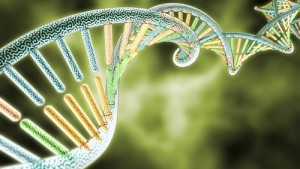 Researchers from the University of Chicago Medical Center found associations between rare genetic variants and risk of asthma. The study entitled “Ethnic-specific associations of rare and low-frequency DNA sequence variants with asthma” was recently published in Nature Communications.
Researchers from the University of Chicago Medical Center found associations between rare genetic variants and risk of asthma. The study entitled “Ethnic-specific associations of rare and low-frequency DNA sequence variants with asthma” was recently published in Nature Communications.
Asthma is a chronic inflammatory disease that affects the airways, and usually begins during childhood. Estimations of heritability indicate that approximately half the variation in risk is attributable to genetic factors. However, results from genome-wide association studies (GWAS) found little associations between genetic variants and in the risk of asthma, know as the “missing heritability’. This may be due to the fact that genetic variants cross-examined by GWAS may not capture all relevant variation. Moreover, statistical methods used in GWAS may be overly simplistic and do not adequately model the genetic architecture of asthma.
Catherine Igartua from the Department of Human Genetics, University of Chicago and colleagues, examined 33,000 rare or low frequency mutations in approximately 11,000 individuals from Americans, African American/African Caribbean and Latino background, using a method that permitted to examine mutations that are common in one ethic background but rare in the others.
[adrotate group=”3″]
The results revealed that the one low-frequency missense mutation in the GRASP and GSDMB genes was associated with the risk of asthma in the Latino sample. The gene MTHFR was found to be mutated in the sample from a Latino background. The team of researchers concluded that associations with rare and low-frequency variants are ethnic specific and not likely to explain a significant proportion of the ‘missing heritability’ of asthma.
In a recent press release, senior author Carole Ober, PhD, Blum-Riese Professor and chair of the Department of Human Genetics at the University of Chicago said, “Previous studies have likely overestimated the heritability of asthma. “This could be because those estimates are based on correlations between family members that share environment as well as genes, which could inflate the heritability. Gene-environment interactions are not considered in these large scale association studies, and we know that these are particularly important in establishing individual risks for asthma.”
“It was assumed that there would be rare mutations with larger effect sizes than the common variants we have been studying,” Ober said in the press release. “Surprisingly, we found that low frequency mutations explain only a very small amount of asthma risk.”

